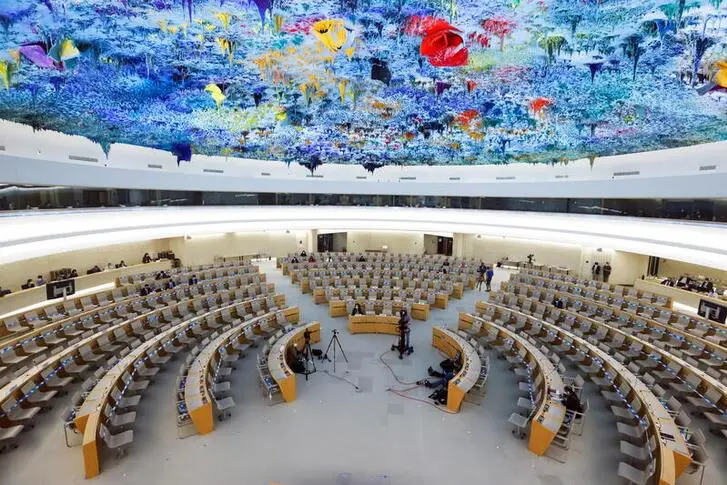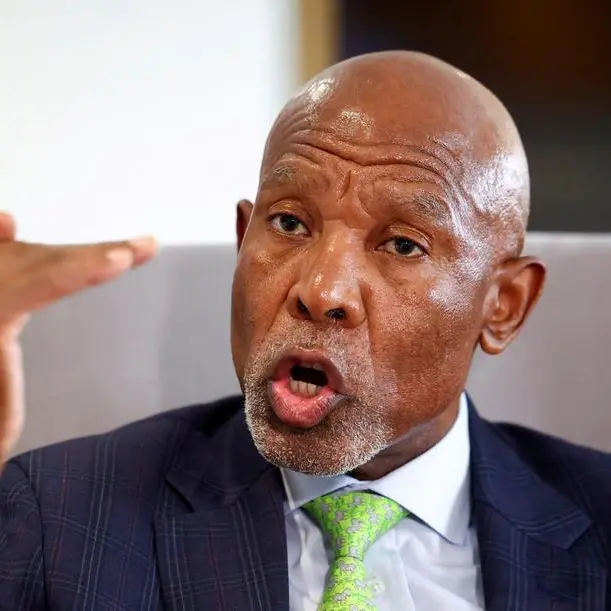PHOTO
The UN has faced mounting criticism in recent years, but remains the foremost manifestation of a multilateral world order, still well-positioned to navigate the complexities of trying to balance sovereign equality with great power politics in order to preserve and promote relative global peace.
However, our world faces an unprecedented confluence of crises that are slowly upending accepted conventions about multilateral cooperation and repeatedly stress-testing its limits. The UN finds itself lacking the capacity to oversee its clear-cut mandates, constrained mostly by its own member states increasingly prioritizing sovereign — often militarized — interests above the preservation or promotion of regional or global “commons.”
In short, the world is rapidly approaching an inflection point. Should the UN remain curtailed by veto-wielding powers in its Security Council, while funding cuts continue to erode the organization’s capacity to act, it is unlikely its legitimacy will survive, spelling doom for global cooperation at the worst possible time.
Beyond the glaring failures at dealing with the pandemic, slow mobilization to counteract the outbreak’s socioeconomic fallout in the developing world, and the ineffectual climate fight, the UN also remains notoriously poor at intervening in conflicts. Its preference for cleaning up rather than pre-empting not only fuels concerns about the UN’s political impotence, but also undermines any UN-led interventions aimed at forging long-term peace.
For now, a climate crisis looms — alongside the perennial threat of resurgent COVID-19 waves and mutations, hobbled economies, and a rising tide of socioeconomic ills — that threatens to drown the world’s poorer regions. The Middle East and North Africa, in particular, face growing turbulence as democracy, long thought to be the panacea of most of the Arab world’s troubles, retreats, leaving societies crippled by political upheaval or ripe for extra-territorial skirmishes sparked by far-off interests competing for regional hegemony.
Elsewhere, the very powers entrusted with the world’s relative peace now bicker and exchange insults — a symptom of the yet unresolved trauma of the previous White House administration’s flirtation with a fragmented international order.
In the Trump leadership’s protectionist view, US national interests were better served via a raft of lop-sided bilaterals that benefited US military largesse and wealth. Working through few multilateral frameworks, where the balancing of varying interests was fundamental to their continued existence, had become a major constraint, especially in instances where Washington became a de facto underwriter of the growth, development and security of others, while its domestic priorities suffered.
In the end, the inevitable US “pivot” has had a profound impact on the UN and most other international organizations’ capacity to act. For instance, a beleaguered World Trade Organization remains crippled by the inability to resolve trade disputes, as well as regulate international trade, while criticisms from farmers, environmentalists, labor groups and policy-makers mount. Stalled talks and largely ineffectual incremental interim agreements have only accelerated the WTO’s slide toward irrelevance.
Meanwhile, Australia and New Zealand’s ratification of the Regional Comprehensive Economic Partnership — the world’s largest trade deal covering 2.2 billion people and over $26 trillion in global gross domestic product — signals a worrying trend in international trade. This growing proliferation of regional trade blocs risks undermining the multilateral WTO system since they often exclude nonsignatories.
Additionally, most developing world economies have had relative gains from participating in global markets governed by common frameworks. However, switching to regional trading blocs risks that progress, coupled with the fact that exclusionary trading blocs will not revive a fragmented and outdated multilateral system. If the 2021 Ministerial Conference starting in Geneva on Nov. 30 fails to make substantial progress toward addressing WTO paralysis and liberalizing global agricultural trade — a major aim of the Doha Development Round — there is little hope the WTO system will survive.
Elsewhere, the World Health Organization is struggling to get ahead of the pandemic as advanced economies resist vaccine sharing, preferring to release limited quantities in a bid to shore up their soft power, rather than act decisively to eradicate the virus. Now, new variants have cropped up in southern Africa, prompting travel restrictions and reawakening last year’s fears of reinfections and fresh waves. Vaccine uptake in sub-Saharan Africa is well under 10 percent, but there has been no corresponding urgency to ramp up vaccine production and deliveries, or mobilize populations to confront a global threat.
Beyond the WTO and WHO, the Global South is also intensifying pressure on the International Criminal Court, denouncing its lopsided focus on the developing world, while major powers consistently intervene to limit any of the court’s activities deemed detrimental to their national interests. An attempt at a “rebrand” a few years ago failed despite a shift from protracted, often politically sensitive, trials toward the prosecution of cultural or environmental crimes.
The move was panned as further stigmatization of the Global South to the benefit and protection of the military and economic interests of the Global North, despite the latter’s complicity in many of the injustices carried out in the former. Despite its relative youth compared with other multilateral agencies, the ICC also finds itself paralyzed by the perception that it has too little authority, making it ineffective at prosecuting certain crimes, while others believe it has too much power and even threatens state sovereignty.
Outside of the UN umbrella, the short-lived US hostility toward multilateralism also doomed other multilateral bodies to an era where competition, rather than cooperation, became a key focus as countries scrambled in a reshuffling prompted by legitimate fears of growing US isolationism. It remains to be seen whether the Biden administration’s course correction toward a more conventional multilateral diplomacy will bear fruit. After all, the pre-2016 global landscape is very different from the current dynamics shaped by the lack of guaranteed US permanence in global affairs. Even if the world were to overcome the pandemic and accomplish the impossible via robust, highly inclusive climate action, the scars of the temporary US abdication remain, preserved by the swift realignments that took place after Washington upended the status quo.
Saving the global order and, in turn, the UN will take more than the rebranding of aging international bodies to reinvigorate participation in them or US re-engagement. More equitable partnerships, particularly within and among developing world nations, must become the foundation of a more resilient multilateral order, capable of surviving the political mood swings in the developed world.
Additionally, as untenable as it is, the world must push for major reforms in the UN, particularly the composition of the Security Council, to better reflect contemporary geopolitics. The General Assembly alone cannot hope to achieve effective multilateral initiatives without the sponsorship of great powers. Meanwhile, the permanent five cannot hope to safeguard their interests without the backing of an increasingly vocal General Assembly, united by shared woes regarding climate change, the pandemic and stalled economies.
Granted, it is largely impossible to return to the heyday of the early UN based on collective security, free trade and self-determination, and neither will America’s return miraculously transform this “me first” world.
However, the greatest folly will be to surrender and/or pursue ineffective alternatives in some “new” Concert of Powers in an effort to cure multilateralism’s many ills. After all, the first such concert, in 1815, was successful for a mere three decades, only to end up ushering in a century of tumult that included two world wars.
Meanwhile, the post-1945 global order that gave birth to the UN has so far preserved relative peace for close to 80 years. The world must not give it up.
- Hafed Al-Ghwell is a non-resident senior fellow with the Foreign Policy Institute at the John Hopkins University School of Advance International Studies. He is also senior adviser at the international economic consultancy Maxwell Stamp and at the geopolitical risk advisory firm Oxford Analytica, a member of the Strategic Advisory Solutions International Group in Washington DC and a former adviser to the board of the World Bank Group. Twitter: @HafedAlGhwell
Copyright: Arab News © 2021 All rights reserved. Provided by SyndiGate Media Inc. (Syndigate.info).





















